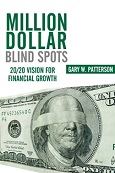Ezine articles has allowed me to share my learning experience which you can benefit from.
You and I will have things go bump in the night. For someone from Boston, how big a deal can a projected 2 inches of snow be?
Well in Atlanta that was a 17 hour trip in the Atlanta blizzard of 2014, even though I left early when I learned about the snow.
What I did not know was that:
(1) the building manager where my car was parked would pre-emptively lock the normal exit gate and force us to go down 5 levels and out a slick 45 degree icy hillside on a side street with no traffic light access. Their decision to unilaterally limit their exposure for someone sliding on snow on their top deck became an unrecoverable event of a very long trip. And it looks like I was only 5 minutes late on getting out before they locked exits (will leave that decision for a customer orientation discussion).
(2) The Atlanta mayor decided to send everyone home at the same time, flooding the highways with a million people, rather than spreading out dismissals.
(3) Atlanta people do not fill their gas tanks on the weekends in snow season, in case, it really snows. That lead to hundreds of cars stalled in traffic UNTIL they run out of gas in the middle of the road to further clog roads.
Using hindsight, I should have either (1) left the luncheon earlier, (2) gotten a hotel nearby to wait out what was then a one inch snow, or (3) been lucky enough to have decided not to go to the meeting.
Having lived in New England for a decade, I knew how to drive in snow and ice, consistently refill my gas tank on the weekend, and had a loving wife call me saying that it actually snowed this time.
Where in your life or business should you (1) have some version of a contingency plan in place for WHEN, not IF something really strange yet foreseeable occurs, (2) proactively create a list of the top 3 foreseeable and reasonably likely to occur situations to avoid, and (3) have some financial or emotional reserves in place for your WHEN, not IF event?
Some organizations call this process contingency planning, risk assessment, operational risk management, enterprise risk management, or even a strategic orientation of your annual budget process. The fact is that if your organization does not regularly engage in at least one of those best practices, your version of the Atlanta snowstorm 2014 is lurking to blindside you and your business.
Failing to plan for any of your Million Dollar Blind Spots that are very foreseeable for someone to second guess your decision that might have been made on what you thought were the best facts available. And truthfully if you done minimal contingency planning on your unique foreseeable risks, you would have had a better frame of reference and insight.
http://ezinearticles.com/?
